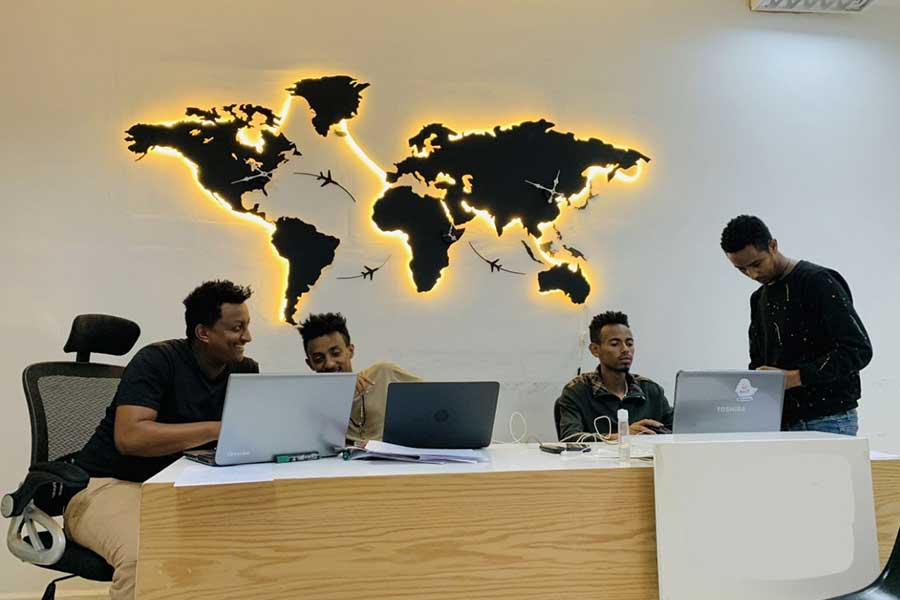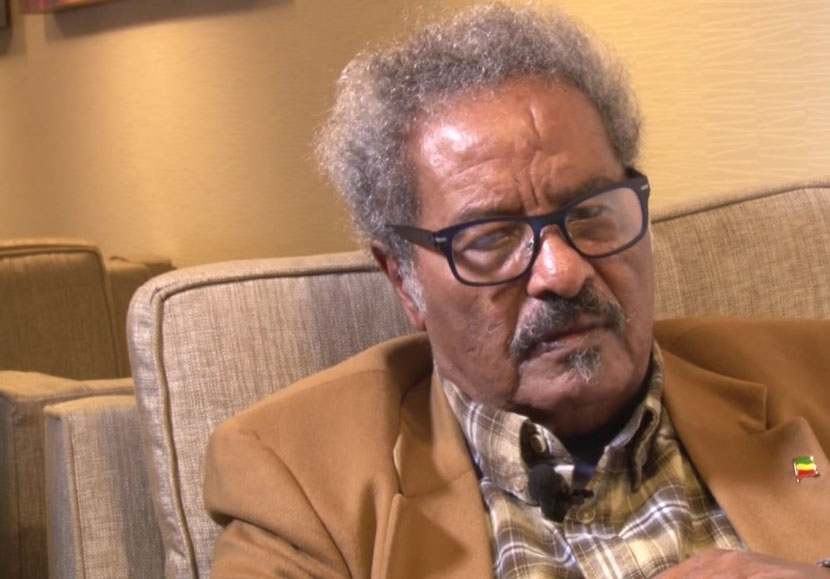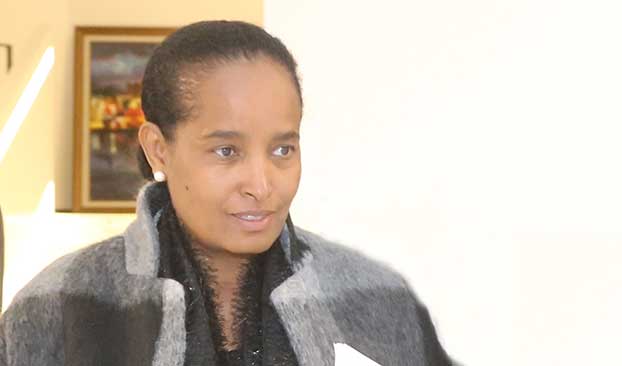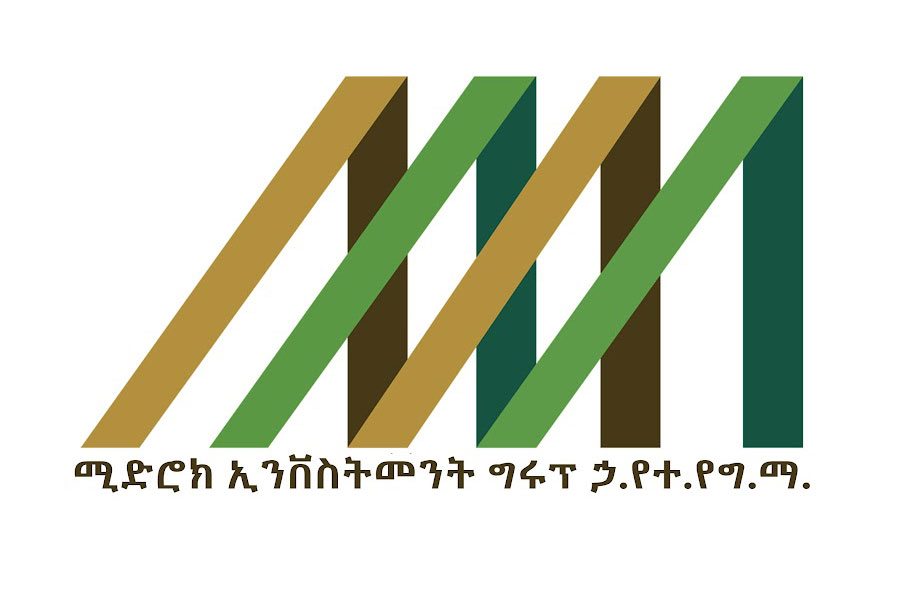
Covid-19 | Apr 17,2020
A local tech company has developed a portal to help students of public schools obtain access to educational resources online and assist them in studying during the Novel Coronavirus (COVID-19) pandemic, which has resulted in the closure of schools across the country.
Cilondis Plc developed the Study Africa portal for elementary, secondary and preparatory school students to get content updates from the Addis Abeba Education Bureau via textbook, radio, Plasma and television. The platform, which took two weeks to be finalised, was developed by Fasil Terefe and Meklit Shewalema, CEO of Cilondis Plc, both information communication technology experts.
Since most of the private schools have their own online learning management systems, Cilondis wanted to help public school students with the system, according to Fasil, one of the developers and a lecturer at Addis Abeba University for the past seven years.
Launched three weeks ago, the portal has so far uploaded 106 subjects for students from grades one through 12.
The portal enables users to share course materials, upload videos, audio and PDF documents, submit individual and group assignments and chat online. However, submitting individual assignments or making use of chat rooms will have to wait until teachers or experts are assigned by the Addis Abeba Education Bureau to engage with the students, according to Fasil.
The learning management systems of the private schools enable the students to interact with their teachers and classmates in two-way interactions.
“However, students of public schools are getting content through the television, radio and the mobile app Telegram, which is difficult, especially for lower classes,” he added.
The Addis Abeba Education Bureau is currently distributing educational content for students of public schools on Telegram. It is also using one of the local radio stations, FM94.7, to continue class for students between grades one through eight. Afri Health Television is also transmitting class for students from grade seven up to twelve for four subjects including chemistry, biology, math and physics.
"They might not efficiently get what they need on the Telegram," said Fasil.
The developers approached the Addis Abeba Education Bureau to take over, manage, monitor and regulate the portal. Now they are in the process of transferring the system to the Bureau.
"We're waiting for legal documents that prove the company has fully transferred the system to the Bureau," said Abebe Cherenet, director of communications at Addis Abeba Education Bureau. "Once they fully hand over the portal to us, we'll launch it in a week."
The Bureau is planning to use the system for public schools in the capital and will share it with the regional states based on their request, according to Abebe.
Separately, Winner System, a subsidiary of Winner Industrial Engineering, has developed an online learning management system to help higher education students and teachers continue classes during the pandemic.
The portal is accessed through the internet, and educational contents will be uploaded on the platform by developers until they deliver it to the City's Education Bureau.
An expert in the information technology and communication industry says that even though the portal is helpful for the students, it will not be inclusive.
The portal is essential as an additional educational resource, according to Abebe Mulu, a lecturer at the University of Gonder. But he questions how many students would use the portal.
"It's also challenging to provide assessments and online tests due to problems with quality and access to the internet," he said. "It's also exposed to cheating."
PUBLISHED ON
May 23,2020 [ VOL
21 , NO
1047]

Covid-19 | Apr 17,2020

Radar | Mar 27,2021

Verbatim | Nov 17,2018

Commentaries | Mar 05,2022

Fortune News | Aug 29,2020

Agenda | Jan 06,2019

Fortune News | Dec 14,2019

Fortune News | Jun 29,2019

Radar | Aug 23,2025

Fortune News | Feb 08,2020

Dec 22 , 2024 . By TIZITA SHEWAFERAW
Charged with transforming colossal state-owned enterprises into modern and competitiv...

Aug 18 , 2024 . By AKSAH ITALO
Although predictable Yonas Zerihun's job in the ride-hailing service is not immune to...

Jul 28 , 2024 . By TIZITA SHEWAFERAW
Unhabitual, perhaps too many, Samuel Gebreyohannes, 38, used to occasionally enjoy a couple of beers at breakfast. However, he recently swit...

Jul 13 , 2024 . By AKSAH ITALO
Investors who rely on tractors, trucks, and field vehicles for commuting, transporting commodities, and f...

Nov 1 , 2025
The National Bank of Ethiopia (NBE) issued a statement two weeks ago that appeared to...

Oct 25 , 2025
The regulatory machinery is on overdrive. In only two years, no fewer than 35 new pro...

Oct 18 , 2025
The political establishment, notably the ruling party and its top brass, has become p...

Oct 11 , 2025
Ladislas Farago, a roving Associated Press (AP) correspondent, arrived in Ethiopia in...